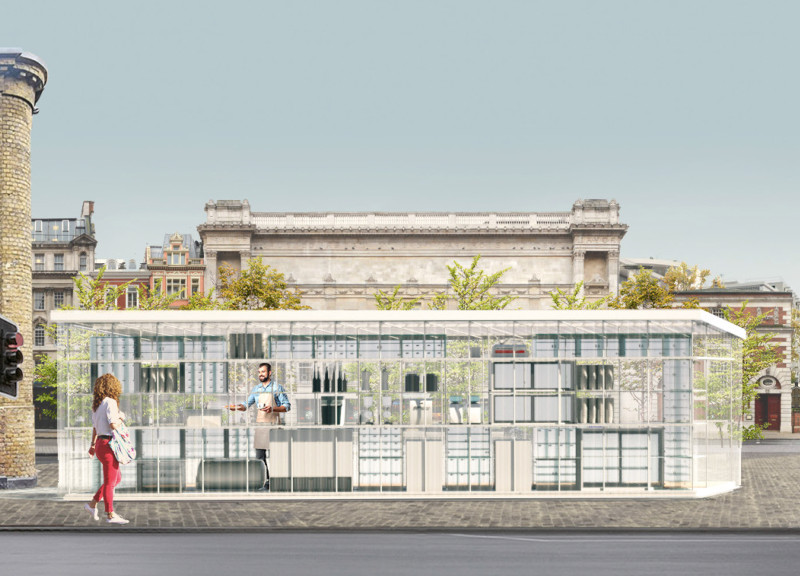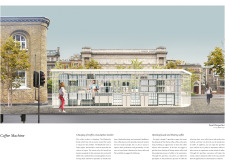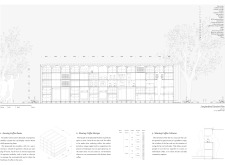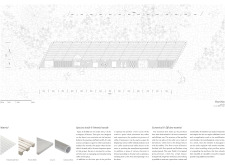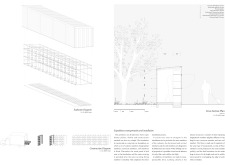5 key facts about this project
### Project Overview
The "Coffee Machine" pavilion is situated in a vibrant metropolitan area and serves as a communal space dedicated to enriching the coffee consumption experience. Designed as both a café and an educational facility, the structure fosters interaction among users as they engage with the coffee-making process, reinforcing trends focused on transparency and participation in contemporary coffee culture.
### Spatial Configuration and User Interaction
The pavilion features a carefully organized layout that emphasizes functionality and user engagement. Dedicated barista workspaces enhance the efficiency of coffee preparation while allowing baristas to connect with customers. An outdoor yard area extends the pavilion's reach, providing additional opportunities for users to interact with one another in a relaxed environment. Interactive displays and workshops within the space further promote learning about brewing techniques and the cultural significance of coffee, enriching the overall user experience.
### Materiality and Sustainability
The design integrates a variety of materials that reflect both durability and visual appeal. The extensive use of polycarbonate panels maximizes natural light and adds an element of transparency, while reclaimed wooden palettes introduce warmth and a tactile connection to traditional coffee culture. Concrete serves as a stable foundation, and galvanized metal contributes both structural integrity and a contemporary aesthetic. Emphasizing sustainability, the pavilion utilizes locally sourced materials, representing a commitment to environmental consciousness and social responsibility in architectural practice.


